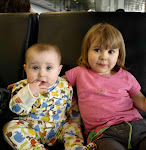The city is gripped with election fever, as voting for a city president gets underway. Politics in Mexico is not the lukewarm activity it is in the UK, it inspires violent passions and the city takes action accordingly.
The shops do not sell alcohol on election weekend, because of the fear of violence, and tourists are told to stay away from the villages, where supporting one political party or another can lead to fights. We struggle to buy cider for a meal we are cooking, but in the end find a small shop willing to break the law to sell it to us,
If the winner of the election was dictated by who has managed to put up the most posters, then a man called Enoc would definitely win. He’s a recent president, and has clearly spent a lot of money on his election campaign. One evening in the Zocalo he has a big party, complete with the ubiquitous loud fireworks, that goes on late into the night.

My favourite candidate is the man whose poster proudly declares “all the women are with me”. He doesn’t explain why, and I don’t like to speculate.
Over dinner with Eneas and Mari (we bring banoffee pie, they serve stuffed chillies and tostadas with cow’s blood topping – not really my cup of tea), they try and explain what will happen in the election. It’s difficult to sort out the different parties, whose names all seem to have three initials beginning with ‘P’. People in the south, they say, do not generally support the president of Mexico (Calderon, whose name means stewpot), and they say people reckon the general election was rigged.

Even if that seems unlikely, it’s easy to see why the family might believe in electoral shenanigans. We read in the local paper after the event that a woman was arrested in San Cristobal for giving out bags of beans and rice as electoral inducements. There were only 14 electoral crimes in nearby Palenque, which is apparently very good. Most seemed to involve blockading the roads so that people could not get through.











